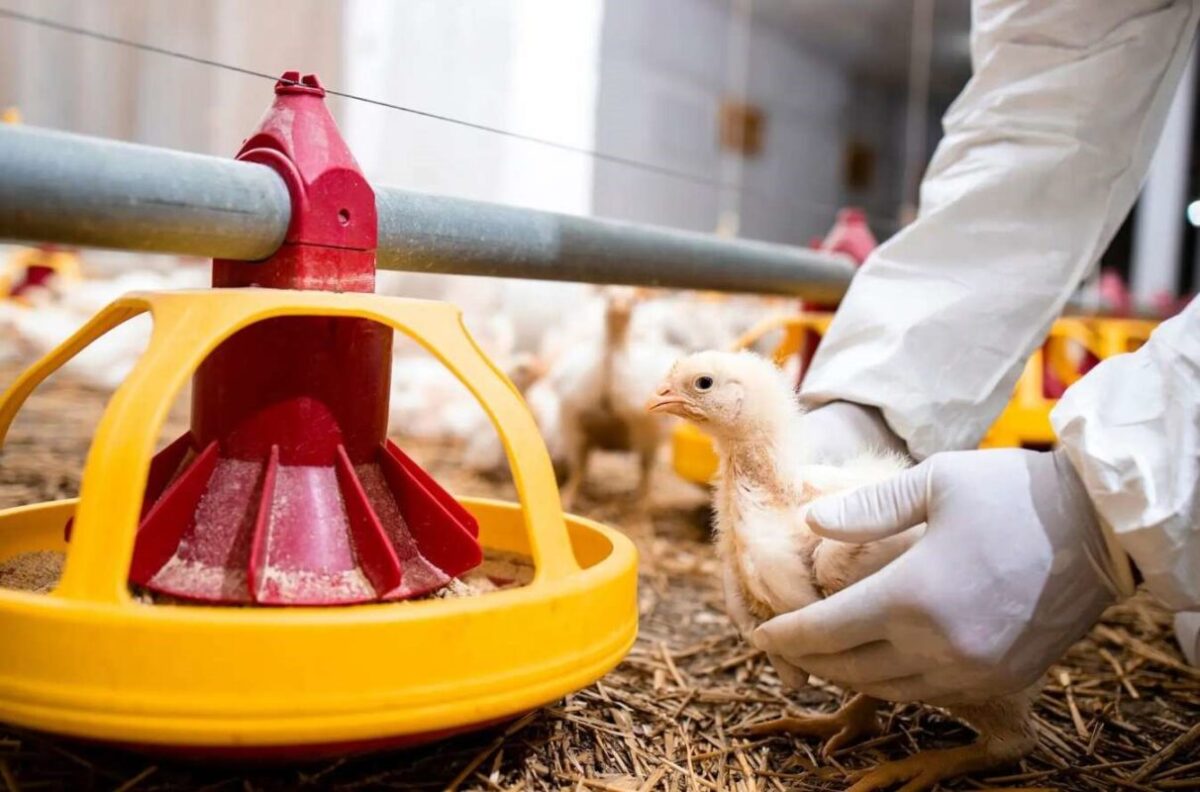How to Prevent and Treat Coccidiosis in Your Poultry Flock

Let’s talk about one of the most common—and honestly, most annoying—diseases chicken owners deal with: coccidiosis. Sounds like a mouthful, right? But if you’ve ever had chickens, you’ve probably run into it or worried about it. It’s caused by these tiny, parasitic protozoa from the genus Eimeria (ugh, even their name sounds shady). They go straight for the gut lining of your birds, causing a whole bunch of problems—especially in young ones.
If you ignore it? You’re looking at weight loss, messed-up digestion, sometimes even death. Not trying to be dramatic here, just… it’s bad. If you care about keeping your flock in good shape, you really need to get a handle on what it is, how to avoid it, and what to do if it shows up.
Table of Contents
ToggleWhat’s Actually Happening Inside Your Chicken
So, here’s the deal. Coccidiosis in poultry doesn’t play nice. It hits the intestines, causing inflammation and wrecking the gut lining. It can show up in two ways: the loud kind and the sneaky kind.
- Clinical cases? You’ll see bloody poop (yeah, not fun), birds acting sluggish, and they’ll stop eating.
- Subclinical? Trickier. The birds might just grow slower or stop laying like they used to, and you’d think something else is off.
What’s kind of wild is that Eimeria species are super picky—they tend to stick with one host species. So the kind that messes with chickens? Not the same as the ones that might hit, say, a rabbit or cow. In poultry, the usual suspects are Eimeria tenella, Eimeria maxima, and Eimeria acervulina. And get this: they love warm, damp, crowded spaces. Basically, if your chicken house is stuffy, muddy, and overpacked? You’ve just rolled out the red carpet for them.
Stop It Before It Starts (Seriously, Prevention Is Everything)
Want the real secret to beating coccidiosis? Don’t let it start in the first place. Prevention’s cheaper, easier, and way less heartbreaking than trying to fix a full-blown outbreak. A few key things can make all the difference:
Biosecurity: Not Just a Fancy Word
Think of biosecurity like locking your front door at night—it’s just common sense. Keep sick or new birds away from the rest of the flock. Clean your boots, tools, and basically anything that goes in or out of the coop. And yeah, don’t let random people wander in either (your cousin’s kid doesn’t need to “pet the chickens” today). Keep that place clean and disinfected so those nasty little oocysts (that’s what the Eimeria parasites turn into) don’t stand a chance.
Moisture = Mayhem
You ever notice how damp, funky-smelling bedding just feels gross? Well, guess what—it’s also a breeding ground for coccidiosis. Wet litter is like a spa for those parasites. You need good airflow and dry bedding. If you see wet spots around drinkers or corners? Scoop it out and replace it, pronto. It’s not glamorous work, but hey—neither is losing half your flock.
Medicated Feed: Still Worth It
A lot of folks still rely on coccidiostats in their chicken feed. These additives don’t exactly kill the parasites, but they keep them from multiplying like wildfire. Just follow the dosage instructions—don’t start dumping in extra like it’s seasoning on fries. And it’s a good idea to rotate meds once in a while so the parasites don’t build resistance. Because yeah, they’re sneaky like that.
Vaccines Are Coming Along
Vaccines for coccidiosis aren’t just science fiction anymore. They actually use weaker versions of the parasite to help chickens build immunity. Sounds kinda backwards, but it works. Especially in big commercial setups. It’s not perfect, and you still need to keep your coop clean, but if you’re thinking long-term, this is a solid piece of the puzzle.
Don’t Stress Your Birds Out
Here’s something people overlook all the time: stressed-out birds get sick more often. Overcrowded coop? Crappy diet? Huge temperature swings? Yeah, that all adds up. A stressed chicken is a vulnerable chicken. Give them space, feed them well, and try to keep the coop environment stable. They’ll thank you by not dying, which is… always a win.
When It Hits: Time to Act Fast
Even if you do everything right, coccidiosis can still sneak in. It sucks, but it’s true. If you spot it early and act fast, you’ve got a good shot at limiting the damage.
Bring Out the Meds
This is when anticoccidial meds come into play. You’ll usually give them through the water or feed—depends on the product and your setup. The goal? Disrupt the parasite’s life cycle so it stops spreading. Common drugs include amprolium, sulfonamides, and toltrazuril. Just please read the instructions. Stick to the correct withdrawal periods or you’ll mess up your meat or eggs, and nobody wants that.
Don’t Forget Basic Care
Medication isn’t magic. Your birds still need help. That means clean, fresh water (all day, every day), easy-to-digest food, and possibly some electrolyte solutions to keep them hydrated. Think of it like chicken Gatorade—gets them through the worst of it.
The Natural Route (Sort Of)
Some folks swear by natural stuff—oregano, garlic, thyme, etc.—and hey, those herbs do have some antimicrobial benefits. If you want to use them as a backup or a supplement, go for it. Just don’t make the mistake of relying on them alone during a serious outbreak. That’s like bringing a butter knife to a gunfight.
Keep an Eye on Things
Once the outbreak’s under control, don’t just move on and hope for the best. Keep watching. Check droppings, watch for signs of fatigue or low appetite, and—this is big—keep your litter dry. Coccidiosis loves a comeback tour if you let your guard down.
New Ideas on the Horizon
Science isn’t standing still on this. New research is digging into the role of gut health and probiotics—turns out, keeping the gut flora happy might actually help chickens resist infection in the first place. Plus, next-gen vaccines (like recombinant or vector-based ones) are looking more and more promising. Less side effects, broader protection, and no drug residues. Especially useful in flocks where antibiotics aren’t even an option.
Bottom Line: Stay Sharp, Stay Clean, Stay Ahead
Coccidiosis is a pain. Always has been. But it’s not unbeatable. With smart prevention, early detection, and a mix of old-school methods and newer tools, you can keep your flock healthy and productive. Don’t slack. Don’t panic either. Just stay on top of it, act quickly when something’s off, and give your birds the best shot at staying strong. That’s the real game plan.
Published by Carol Jones
My aim is to offer unique, useful, high-quality articles that our readers will love. Whether it is the latest trends, fashion, lifestyle, beauty , technology I offer it all View more posts







